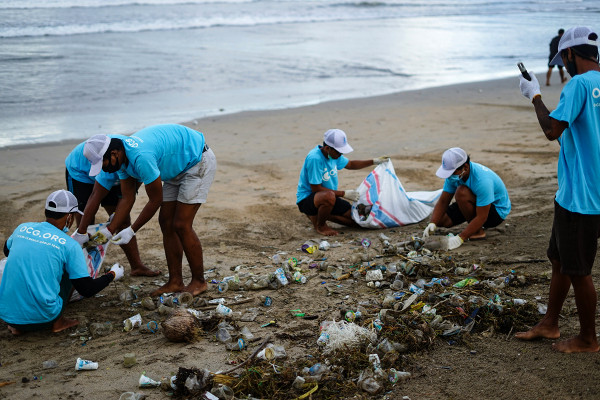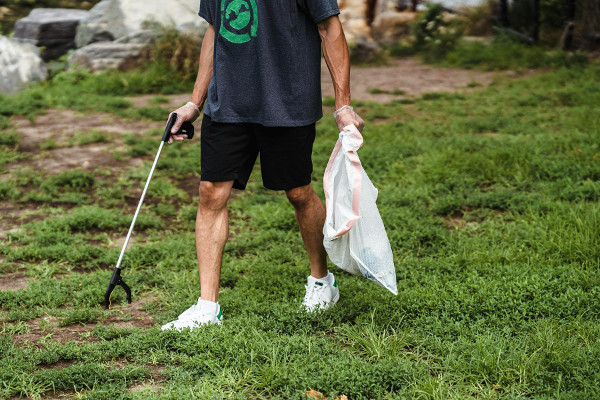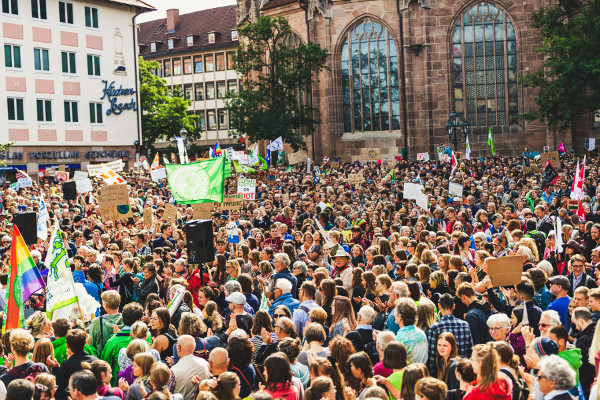How to Get Involved in Environmental Volunteering: A Guide to Types and Finding the Best Fit for You
If you've ever felt the urge to do something more for the planet, environmental volunteering might be exactly what you're looking for. It’s more than just planting trees or cleaning up beaches; it's about making a lasting impact on the world around you, contributing to causes you care deeply about, and reconnecting with the environment in a meaningful way. Whether you're looking to reduce your carbon footprint, protect endangered species, or just get outside and help out, there’s a perfect environmental volunteering opportunity for you.
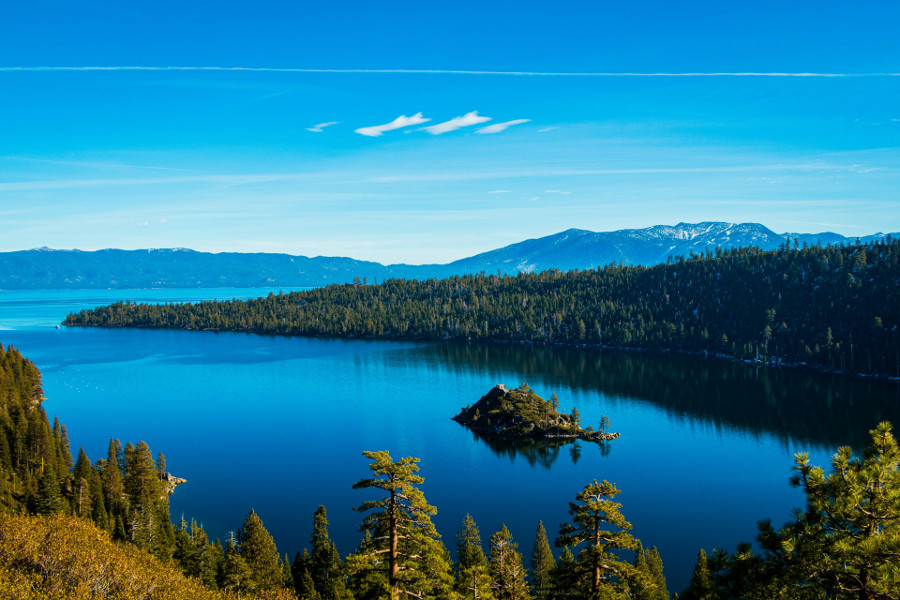
We live in an age of rapid environmental changes. Climate change, deforestation, and pollution are all global issues that require collective action. But how do you get started? How do you know which volunteering opportunities are best for you? That’s what this guide is for - helping you find the right environmental cause to match your passions, interests, and skills.
I. Why Volunteer for Environmental Causes?
In a world where the news is constantly filled with stories of environmental decline, it can sometimes feel like the situation is beyond repair. But the truth is, positive change is happening, and you can be part of it. When you volunteer for an environmental cause, you're not just donating your time; you're playing an active role in the solutions we so desperately need.
Environmental volunteering offers countless benefits, both for the planet and for you. By taking action, you get to be part of something bigger than yourself. The sense of accomplishment and fulfillment you feel after helping restore a forest, clean up a river, or educate a community is unmatched. It’s a chance to create tangible change, build your skillset, meet like-minded individuals, and truly make a difference.
But it’s not just about the rewards for the planet - volunteering can also provide personal growth. Whether you’re looking to gain new skills, expand your network, or even kickstart a new career in environmentalism, volunteering is a fantastic way to get involved in the cause while enriching your own life.
II. Types of Environmental Volunteering Opportunities
When it comes to environmental volunteering, there’s no shortage of ways to get involved. The key is finding a cause that resonates with you - whether you're passionate about wildlife, climate change, waste management, or education. Here are some of the most common types of environmental volunteer roles available:
1. Conservation Volunteering
Conservation is one of the most fundamental types of environmental volunteering. These volunteers focus on preserving natural habitats, protecting wildlife, and restoring ecosystems that have been damaged by human activity. This could involve anything from planting trees in deforested areas to monitoring endangered species.
- Help restore damaged ecosystems.
- Assist with wildlife monitoring and research.
- Participate in habitat restoration projects.
Ideal for: Nature lovers, animal enthusiasts, and those who enjoy hands-on activities.
If you’re passionate about protecting the planet’s biodiversity and want to contribute to long-term conservation goals, this type of volunteering will feel especially rewarding.

2. Environmental Education and Advocacy
Volunteering in environmental education and advocacy is all about spreading knowledge and raising awareness. As an advocate or educator, you’ll help inform others about critical environmental issues like climate change, pollution, and conservation. You might work with local schools, community groups, or on public awareness campaigns.
- Lead educational programs and workshops.
- Organize or participate in environmental campaigns.
- Advocate for sustainable practices or policies.
Ideal for: People who love to share knowledge, enjoy public speaking, or have a knack for community outreach.
This is a great option if you want to empower others to make sustainable choices and get the word out about environmental issues.
3. Eco-friendly Event Planning
Ever wondered how large events like festivals or conferences can be made more sustainable? Eco-friendly event planning is about using sustainable practices in organizing events, from reducing waste to promoting energy efficiency. Volunteers in this area work to make these events more environmentally friendly and minimize their carbon footprint.
- Assist in organizing zero-waste events.
- Promote green transportation options for attendees.
- Help with sustainable event logistics, like reducing plastic usage.
Ideal for: Those who love event planning, logistics, or working behind the scenes to create smooth-running events with minimal environmental impact.
If you're someone who enjoys being part of big events but wants to ensure they’re sustainable, this is a fun and impactful area to get involved in.
4. Recycling and Waste Management
Recycling and waste management volunteering is all about reducing waste, recycling materials, and promoting sustainability. Volunteers may help with community cleanups, organize recycling drives, or work on waste reduction programs in local areas. This work can range from hands-on tasks like sorting recyclables to advocacy around better waste management practices.
- Help organize community cleanups and recycling events.
- Educate the public about the importance of waste reduction.
- Participate in composting programs or waste diversion projects.
Ideal for: Those who are passionate about reducing pollution, love working with others, and want to tackle waste issues head-on.
If you’re passionate about fighting pollution and believe in the power of recycling, this kind of volunteering lets you make an immediate, visible impact.
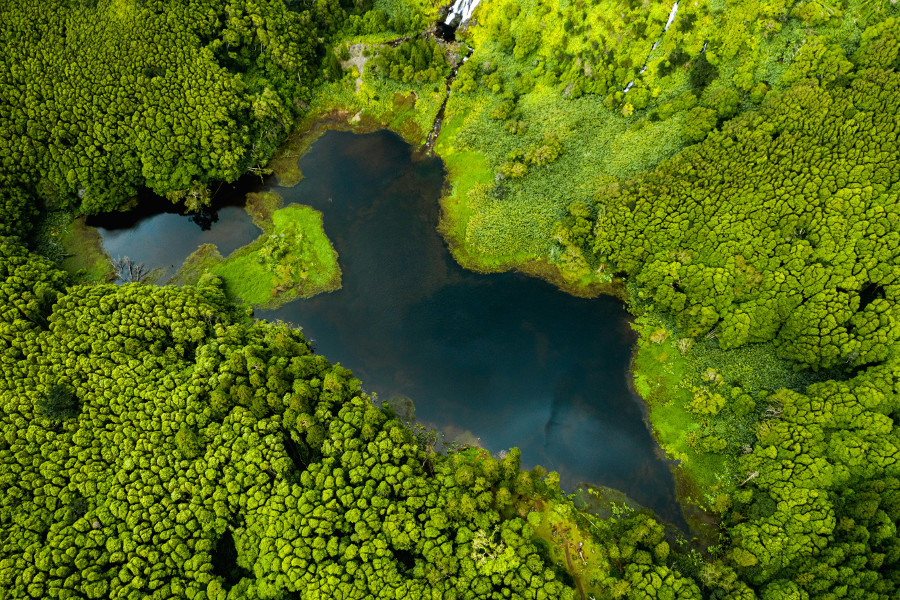
5. Climate Action Volunteering
If you’re passionate about climate change and want to help reduce the human impact on the environment, climate action volunteering is a fantastic choice. Volunteers in this area often focus on projects that directly mitigate the effects of climate change, such as tree planting initiatives, renewable energy projects, or community outreach campaigns.
- Organize or participate in tree planting initiatives.
- Assist with renewable energy projects or campaigns.
- Advocate for climate-conscious policies and practices.
Ideal for: Those concerned about the future of the planet and eager to tackle climate change directly.
Volunteering in climate action is a great way to actively help combat global warming while engaging in educational, practical, and community-driven efforts.
6. Environmental Health and Justice Volunteering
Environmental health and justice volunteers focus on ensuring that all communities, especially marginalized ones, have access to clean air, water, and safe environments. Volunteers in this area often work on projects that monitor pollution, support communities facing environmental hazards, and advocate for policies to protect vulnerable populations.
- Help monitor air and water quality in affected communities.
- Work with local groups to address environmental health risks.
- Advocate for environmental policies that protect at-risk populations.
Ideal for: Those who are passionate about social justice and want to ensure that environmental protections benefit everyone, regardless of their socio-economic background.
If you're driven by a sense of fairness and want to make sure everyone has access to a healthy environment, this type of volunteering allows you to address both environmental and social issues.

III. How to Find the Right Environmental Volunteering Opportunity for You
With so many different types of environmental volunteering opportunities available, how do you choose the right one for you? Here are some tips to help guide your decision-making process:
1. Assess Your Interests and Skills
Start by reflecting on what matters most to you. Do you care deeply about climate change? Or are you more interested in wildlife conservation or waste management? Think about what excites you most about environmental work.
Also, consider what skills you have to offer. Are you good at public speaking? Perhaps environmental education or advocacy is a good fit. Do you have a background in science or research? Conservation work might be the best match.
2. Consider Your Time Commitment and Location
Some environmental projects might require a long-term commitment, while others may be short-term or project-based. Consider how much time you can realistically dedicate. Additionally, think about where the project is located - are you looking for something local, or are you open to international opportunities? Many environmental organizations offer remote volunteer positions too, so this could be a good option if travel or time constraints are a factor.
3. Research Organizations
Once you’ve identified your interests, take the time to research potential organizations. Use platforms like Idealist or VolunteerMatch to find specific opportunities that align with your passions. You can also check out local environmental NGOs, government agencies, or grassroots community groups. Social media and environmental networks are also valuable resources to connect with others in the field. Browse the websites of organizations like International Volunter HQ, VolunteerWorld, The Nature Conservancy and Greenpeace.
4. Evaluate the Impact
When choosing an organization to volunteer with, it’s important to look at its track record. Does it have a clear mission and measurable impact? Transparency about how donations are spent and past successes will help you make an informed decision.
IV. Tips for a Successful Environmental Volunteering Experience
Now that you know how to choose the right opportunity, here are a few tips to ensure a positive and impactful experience:
- Be Proactive: Don’t wait for the perfect opportunity to find you - take the initiative and reach out to organizations.
- Stay Committed: Even small actions make a difference. Stay engaged and keep up your efforts.
- Build Relationships: Volunteering is also a great opportunity to meet like-minded people who share your passion.
- Be Adaptable: Plans can change. Stay flexible and make the most of unexpected opportunities.
- Track Your Impact: Keep a record of your activities, and watch how your efforts contribute to larger environmental goals.
Conclusion
Environmental volunteering is a rewarding way to make a real difference, not just for the planet, but for your own personal growth. With so many types of opportunities available, from conservation to climate action to environmental education, there’s something for everyone. The key is finding the cause that speaks to you and taking the first step toward making a meaningful impact.
So, what are you waiting for? Dive into the world of environmental volunteering today - whether you’re interested in local community efforts or global initiatives, your contributions will help shape a better, more sustainable world for generations to come.

